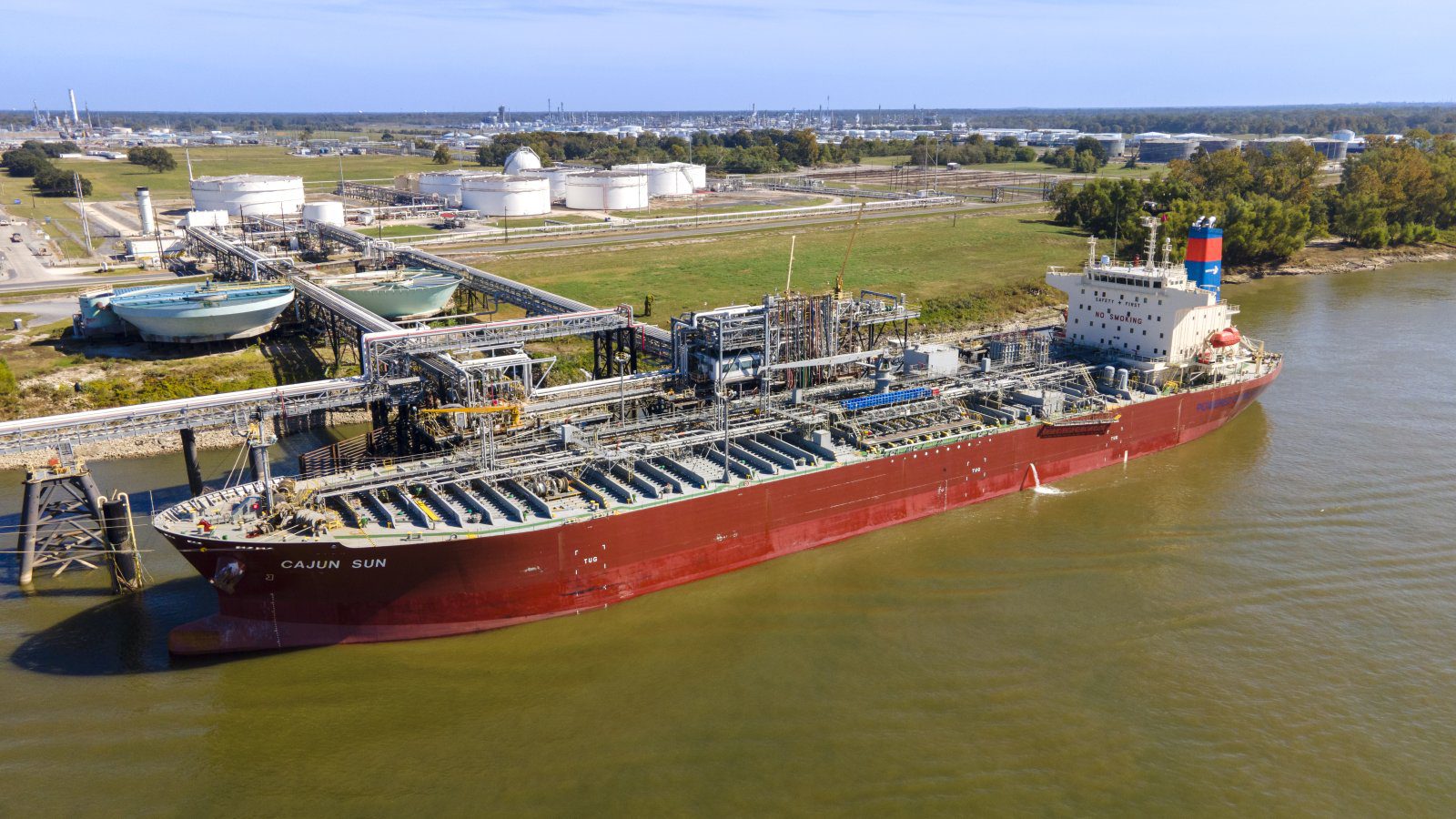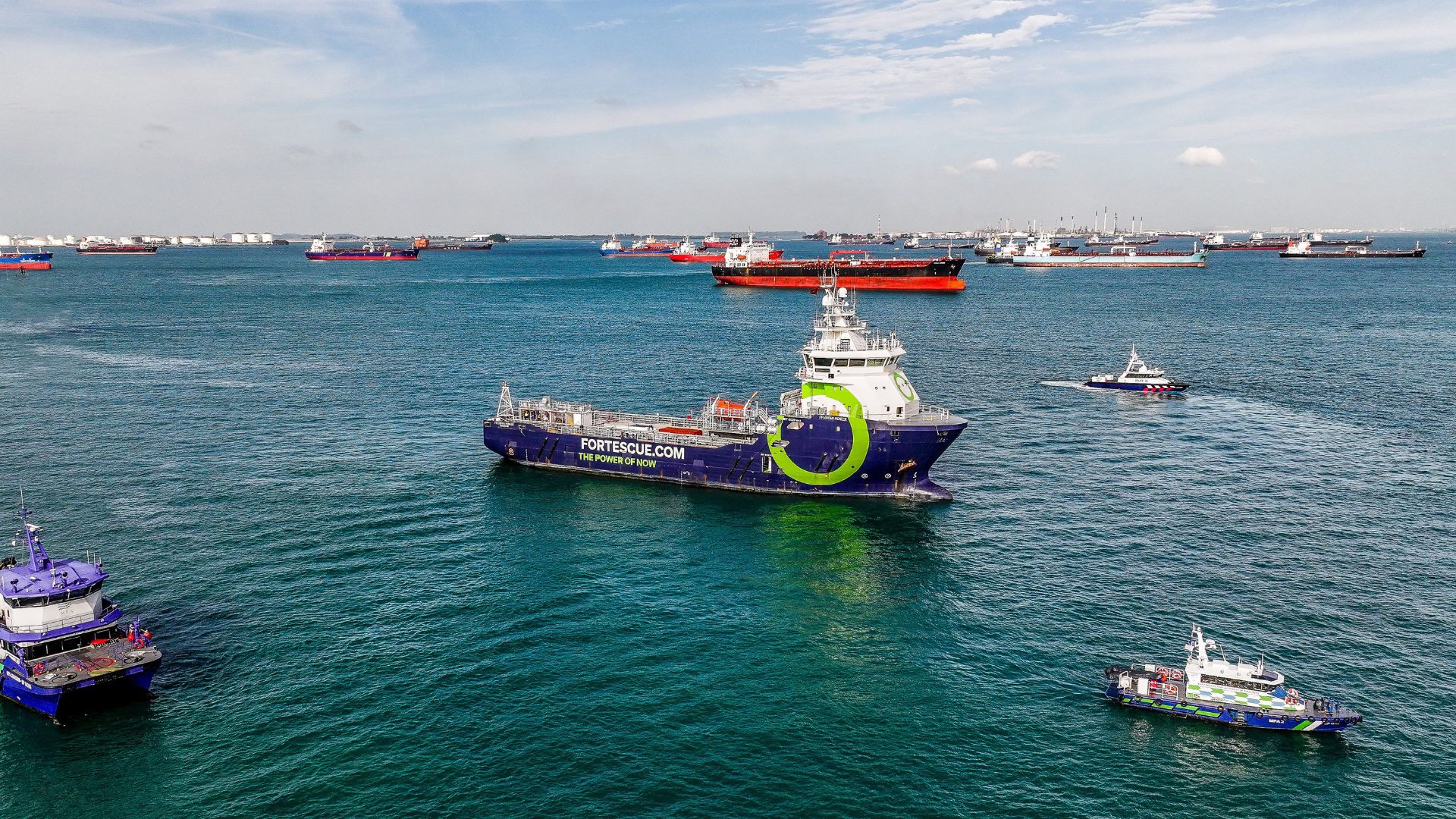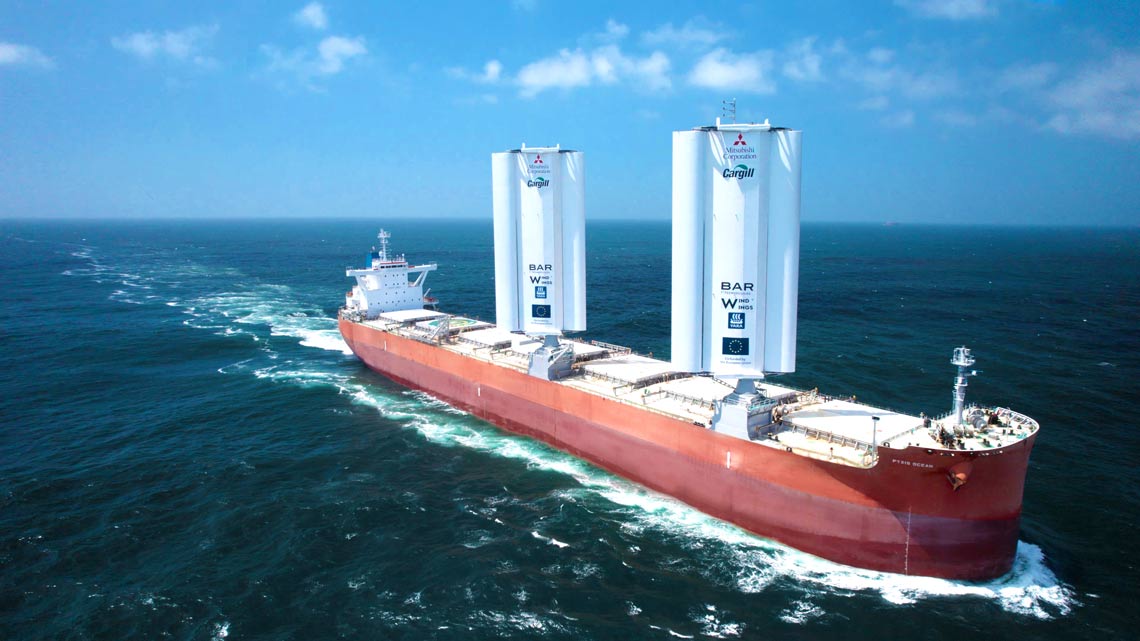Methanex Corporation and Mitsui O.S.K. Lines this week announced that the dual-fuel vessel Cajun Sun successfully completed the first-ever net-zero voyage fueled by bio-methanol.
The Cajun Sun is operated by Methanex’s subsidiary Waterfront Shipping and chartered from MOL. The net-zero voyage departed from Geismar, Louisiana in the United States on January 17, arriving in Antwerp, Belgium about two and a half weeks later.
By blending ISCC-certified bio-methanol that has negative carbon intensity with natural gas-based methanol, net-zero greenhouse gas emissions on a lifecycle basis were achieved for the 18-day trans-Atlantic voyage, Methanex said in a press release.
The voyage is an example of how Methanex and MOL are collaborating to demonstrate the viability of methanol as a marine fuel with a pathway to net-zero emissions in support of shipping’s energy transition.
Waterfront Shipping became early adopter of methanol as an alternative marine fuel in 2016 when it jointly built the world’s first ocean-going methanol dual-fuel tanker named Taranaki Sun with Methanex and MOL. Today, Waterfront shipping operates a fleet of 19 deep-sea tankers equipped with methanol dual-fuel technology.
Methanol is emerging as a promising alternative fuel that can help shipping meet its increasingly strict emissions targets. Not only is it one of the world’s most widely traded chemicals, but it is also readily available at most of the world’s top ports and its use can be incorporated into existing bunkering infrastructure, making it a popular alternative fuel choice for shipowners.
According to classification society DNV, in 2022 there were 35 newbuild ships ordered with the fuel, primarily in containership sector but also in others such as heavy lift, ranking it as the second most popular alternative fuel behind liquefied natural gas.
Compared to convention marine fuel, methanol significantly reduces emissions of sulphur oxides (SOx), nitrogen oxides (NOx) and particulate matter, in addition to reducing CO2 emissions. Methanol produced from renewable sources can further reduce CO2 emissions by up to 95 percent compared to conventional marine fuels, providing a pathway to meet the International Maritime Organization’s (IMO) decarbonization goals. Bio-methanol is a type of renewable methanol that is produced from biomass feedstocks rather than fossil fuels, and can be blended with traditional methanol or other fuels to improve to reduce their carbon footprint.
“We’re proud to bring the marine industry a tangible solution to transition towards net-zero emissions through our blended methanol product using bio-methanol produced from renewable natural gas at our facility in Geismar,” said Mark Allard, Methanex’s Senior Vice President, Low Carbon Solutions. “As the world’s largest methanol producer, we are establishing a network of relationships with leading renewable natural gas suppliers and assessing other pathways, including carbon capture and storage and e-methanol, to provide solutions for the marine industry and other customers.”
MOL acquired a 40% stake in Waterfront Shipping in early 2022 for $145 million, forming a strategic partnership to help develop the market for methanol as a lower emission marine fuel.
“We’re pleased to complete the net-zero voyage by utilizing bio-methanol. This is another example of what we can collectively accomplish in our long-term partnership with Methanex and Waterfront Shipping that was solidified in early 2022 when we purchased a 40 percent interest in Waterfront Shipping,” said Kazuhiro Takahashi, MOL’s Executive Officer responsible for Bunker Business Division. “MOL, as a pioneering shipping company, is committed to reducing the environmental impact of the shipping sector. The use of methanol, which can be readily adopted today, is one of the very promising alternative fuels. We are also contributing to various stages of supply chain through the development and usage of alternative fuels in the global shipping industry.”
Editorial Standards · Corrections · About gCaptain

 Join The Club
Join The Club











